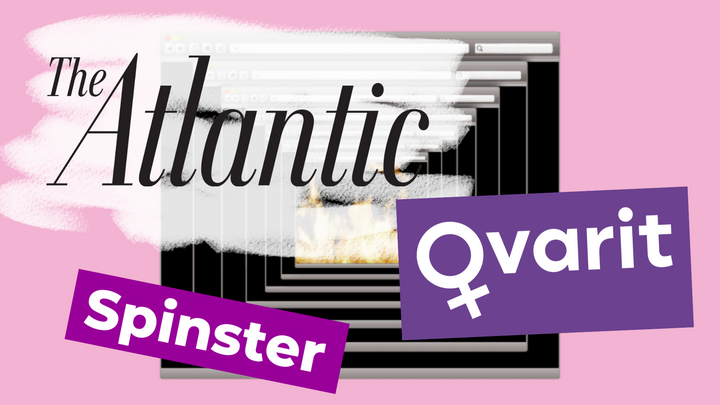Brazil's High Court Rules to Include Men in Violence Against Women Law
The court ruled that anyone who identifies as a woman is included under the protections of the Maria da Pennha law

The highest court in Brazil ruled on April 5, that men who say they are transgender should be able to benefit from an act created to protect female victims of domestic violence. The Maria da Penha Act, established in 2006, aims to reduce domestic violence in the country.
This was the first time that the inclusion of trans-identified males in Maria da Penha Law was discussed in the Superior Justice Court in Brazil. The ministers who voted understood that article 5, from Maria da Penha Law, describes domestic violence against women as “any action or omission based on gender,” but since the word sex is not mentioned, their understanding was that “gender” does not involve “biological aspects.”
The judgment was ruled unanimously in favor of validating the application of the Maria da Penha Law to men who say they are trans. The ruling will be now used to set a precedent in lower justice courts. To reach their decision, the ministers analyzed an appeal made by the Ministério Público (Federal Prosecution Service) against a ruling from a justice court in São Paulo. The ruling in Sao Paulo had previously denied the application of the protective measures provided by Maria da Penha Law for trans-identified males.
"If the Law is applied based on gender and not sex, who protects women who, for whatever reasons, have transitioned to the male gender?"
The ministers reviewed a single case of a trans-identified man whose father physically assaulted him after antagonizing his son for being transgender. The man then sought protective measures to be applied to his case. A male minister, Rogério Schietti, told the media that the “cause transcends individual interests,” declaring/highlighting that Brasil is the country with the highest murder rates of trans-identified individuals for 13 years.
Schietti said that trans murder rates in Brazil are of great concern and that what is being discussed is the possibility of applying the protective measures of the Maria da Penha Law to whoever “identifies as a woman.” Another minister, Laurita Vaz, agreed that the “brutal reality” lived by trans-identified males “allows us to identify common traces of the violence perpetrated against women,” as it happens “in the same context of the (Maria da Pennha) law to protect women - gender violence by family members.” She argued that trans-identified males are targeted “exactly for their female condition” and that this violence has the same origin: “gender discrimination.”
But for the Brazilian women’s groups 4W spoke too, this is a gross misinterpretation of the law. Collective SOMA “observed with concern” the ruling by the STJ. “We understand that the problem with this type of decision is to reinforce an understanding of what it would be like to be a woman and (the subject) has not undergone a broad democratic debate.”
SOMA, who is organizing a program in April to help survivors of domestic violence to recover, said that “no decision on gender identity has gone through legislative debate,” in Brazil. The collective highlighted that, everytime the judiciary includes men who say they are trans in the female category, it becomes “more difficult for society to have a broad debate about this new ideology and its consequences for women.”
SOMA also raises the case of females who say they are trans, asking what is going to happen to them. “If the Law is applied based on gender and not sex, who protects women who, for whatever reasons, have transitioned to the male gender?”
"The decision in practice will change the category of sex as a prerequisite for accessing legal mechanisms to protect women victims of violence."
The Brazilian branch of the Women’s Declaration International (WDI Brasil) told 4W that they are deeply concerned with the decision by the court to amend Maria da Penha Law.
“The decision in practice will change the category of sex as a prerequisite for accessing legal mechanisms to protect women victims of violence,” said WDI BR member Thalita Aguiar. “According to the decision, the biological aspects of women, which make them the main targets of domestic and family violence, are no longer considered determinants.”
WDI says that, not only these men will be allowed to access the legal mechanism put in place to protect women, but also the few resources allocated to survivors, such as shelters for female victims of violence.
“This decision has a concrete impact on the lives of the entire population. Maria da Penha law aims to protect women… once a woman is no longer an adult human female… anyone can call themselves a woman.”
According to WDI BR, other devastating consequences may reach society as whole when gender identity trumps biological sex. “This could have a really negative impact on family members who question surgical procedures on very young people, those who forget someone’s preferred pronouns or elderly relatives who have difficulty in understanding gender-fluid/non-binary identities,” they said.
4W provides paid writing work for over 50 women in countries spanning the globe. This work is made possible thanks to our paid monthly subscribers. Join today to support our work!
Enter your email below to sign in or become a 4W member and join the conversation.
(Already did this? Try refreshing the page!)





Comments